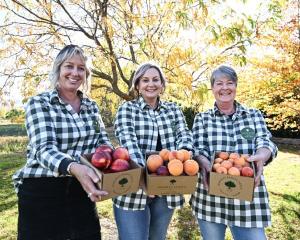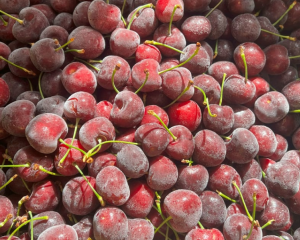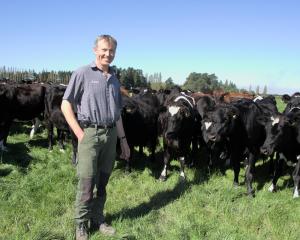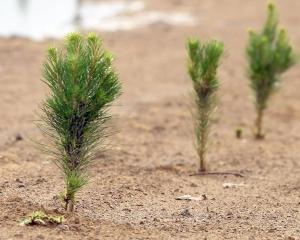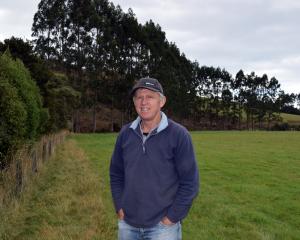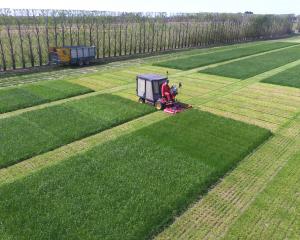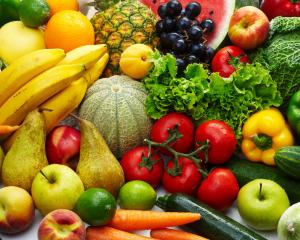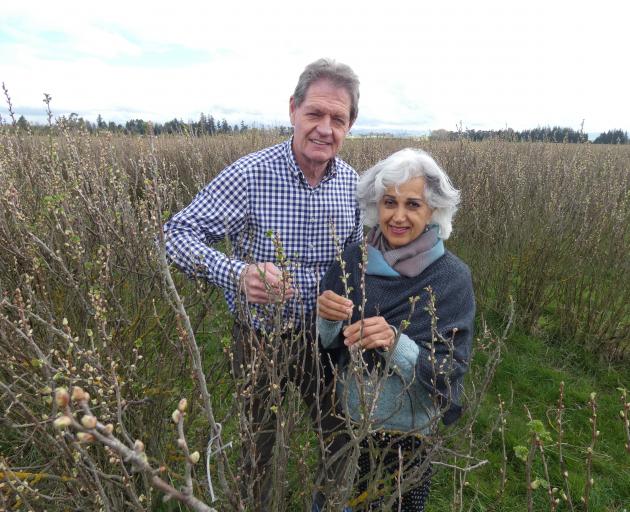
Trusting their instincts has paid off for blackcurrant growers Tony and Afsaneh Howey.
The Pleasant Point couple have 70ha planted in the small berries. They entered horticulture growing in 2004, as complete novices.
Today, they run the largest organic operation in the country. About 30% of the crop goes to their own branded products and the rest are sold as ingredients to 60 companies.
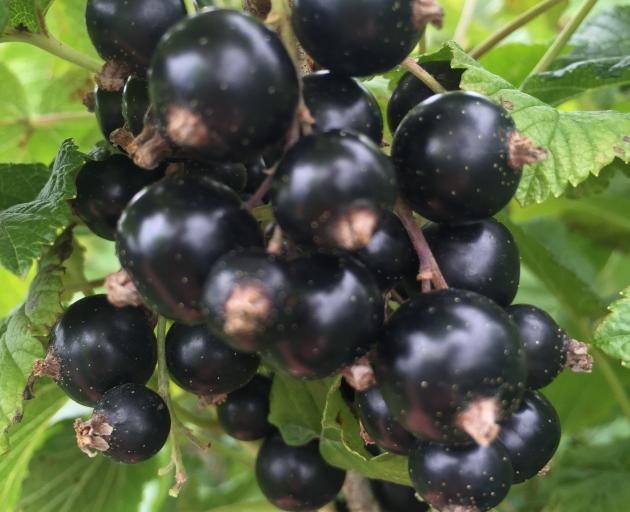
Persian-born Afsaneh was studying in the Philippines in the late 1970s before the Iranian Revolution.
She could not return to her home country when the Shah was toppled by an Islamic government, for fear of being persecuted because of her Baha’i faith.
Her brother was at Lincoln University and sponsored her as a religious refugee. She was introduced to a friend of his at a Baha’i conference, who just happened to be Tony.
It was an instant attraction and they have been together in marriage and business since.
They entered farming in 1986, growing seed, cereal crops and vegetables as Alpine Fresh Ltd.
‘‘Following their gut’’ was put to the test when they founded Southern Packers to grade and pack onions.
About 80 staff were needed for a new factory and an advertisement was put out with 700 to 800 people arriving the next morning.
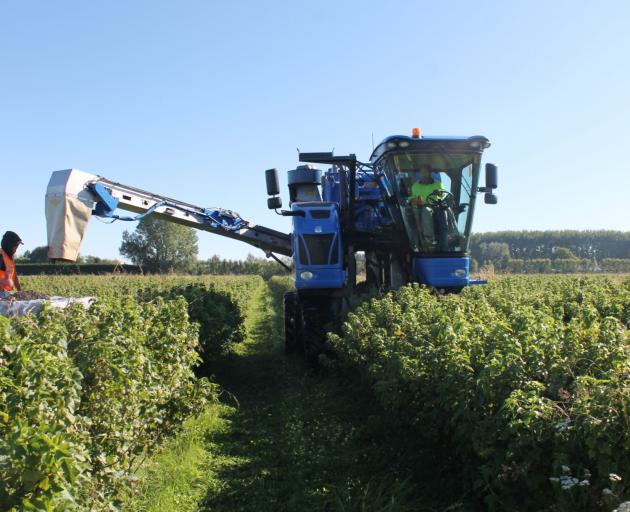
The next year, two teams were set up for interviews with Tony greeting them.
‘‘I would accompany the person from the waiting room and mark them by shaking their hands and taking them to the rooms and my marking was almost identical to the interviews that were taking place. So the first 10 seconds of meeting somebody is so important.’’
When the opportunity came to buy land with blackcurrants and other crops on it they took a leap of faith in 2004.
It was a less than auspicious start, as a hailstorm took out the entire crop and disrupted the next two seasons’ production.
‘‘The one thing we are good at is being resilient,’’ says Tony.
‘‘Some people might think we are pig-headed because we’ve stuck with it and it’s been a huge investment. If we’d planted it out in grass and had it as a grazing proposition or a dairy farm we would have been financially better off, but we wanted to do something we felt good about.’’

‘‘When we heard how good this little tiny berry was for health we thought that’s what we want to do — create something healthy to improve people’s health. People come to us at the shows and say how much it’s improved their health. It really gives us an encouragement to keep growing and stick at it.’’
The berries are high in antioxidants and rich in vitamins.
But the People’s Choice Organic Food Product of the Year winners are careful about making overly-inflated health claims without clinical studies to back them up.
Tony says there is also enough literature available to show that Vitamin C is important for good health and antioxidants called anthocyanins are good for you.
Within four years, they started converting eight hectares to organic production. The entire crop is certified now.
Tony says they wanted the black currants to be grown in a good environment so they could shape the organic story to create their own branded products.
‘‘We don’t have anything against conventional growing and I’m not sure we could feed the whole planet if it went organic. So I’m not saying the whole world needs to go organic, but I think we need to engage more organic principles.’’
They’ve always produced raw material for multi-national companies, but wanted to get away from juice and jams, and sell directly to customers.
So they started with frozen black currants under their own brand in 2014.
Visiting organic stores, Afsaneh would praise their virtues and bake home-made muffins for supermarket tastings.
A freeze-dried line was introduced, and their lightness made them ideal for exporting.
Today their Viberi range includes a powder selection and more recently, mixed berries.
For some people this was still tart to their taste so they pioneered their chocolate-rolled black currants, initially with dark chocolate.
Now Noir, ruby, pearl and cacao chocolate are in air-tight packaging and the dusted-concept has been taken up by competitors.
Afsaneh says they want to produce more health products next, with less processing and few ingredients, for the pharmaceutical market.
New technology is making them re-think their packaging and they are detouring from a foil pocket to go into recyclable plastic.
The next challenge is to lift crop yields.
Organic crops are prone to weed competition in between rows, but herbicides can not be sprayed as they leave chemical residues. So mowers and sheep in the winter are used to keep them down.
The animals are removed in spring when they start eating bushes, so they are experimenting with chemical-free wood shavings as mulches.
Low-lying clover is planted in the rows of new blocks to fix nitrogen and help grow healthy bushes. They’re also toying with hand-pruning them to encourage growth.
Clearwing moths are their main pest, as their larvae burrow into the stem of the plant and eat them inside out.
Again, strong pesticides are not an option, so pheremones are used as a mating disruptor to confuse the males when they try to find females.
Tony says they want to give customers an absolute assurance that there are no impurities, as most people eat organic food because they want to trust the product.
Afsaneh says this has its challenges.
‘‘We’ve gone one step more difficult and it’s more expensive to create that as we feel that a health product has to be absolutely pure. We would like to bring the price down and make it more available to the general public rather than only people who can afford to buy organic.’’
Tony says the only way to do that is to increase their yields.
‘‘Our average yields at the moment are only around 3-4 tonnes a hectare, but we need to get them up closer to the industry average of 8-10t/ha.’’
The same care they devote to their land, finished product and customers extends to their staff, who are all paid above the living wage.
Most of their black currants are consumed domestically, and the United States is their largest buyer of raw product, sent as organic ingredients for pharmaceuticals.
Until lately, they were known as the “forbidden fruit’’ and black currants fell out of favour in American diets, due to farming bans. They were thought to produce a fungus harmful to white pines, but that mindset is changing.
Afsaneh says it has been satisfying seeing other companies follow their lead.
‘‘We saw the potential and believed in it and now we see a lot of different brands and their hero product is black currants. Really, their story is the black currants and how good it is for mental clarity and eye health. We believed in it from the beginning and didn’t give up.’’


